Meet our Editorial Board
Editors:
Michael Frederick (Editor-in-Chief)
E-mail: mfrederick@ubalt.edu
Ph.D., M.A., B.A., University at Albany
I began taking psychology courses as an undergraduate student to gain a better of understanding the inner workings of the human mind. As I learned more, I began to wonder how we humans could be so sophisticated, yet also prone to making silly mistakes on a regular basis. We can remember the details from a conversation that took place years ago, yet we are frequently biased, distracted, impulsive and unable to regulate our emotions. This puzzle was finally resolved for me after taking a course in evolutionary psychology. I came to realize that our brains have amazing built-in potential, but that our evolutionary history has shaped our brains to be very good at certain tasks while leaving us relatively unprepared for many of the challenges we now face.
This new perspective led to a fascination with all things related to evolution and the brain. I entered a graduate program in biopsychology at the University at Albany and utilized a variety of research techniques with both human and animal participants. In particular, I took an interest in the ways early development may shape an individual’s behavioral predispositions later in life. A stressful early environment might, for example, lead a person to become more impulsive as an adult. Growing evidence implicates epigenetics in this process, which operates in-between what psychologists typically view as ‘nature’ and ‘nurture.’
After obtaining my degree, I accepted a visiting assistant professor position at Hamilton College. There I continued my developmental research while also exploring a phenomenon known as contrafreeloading. This phenomenon occurs when a creature works for a reward that is freely available, such as a rat pressing a lever to obtain food that is also available from a dish. By examining contrafreeloading in rats that are exposed to various drugs, I was able to enhance our understanding of the underlying neurobiology of this counterintuitive behavior.
I joined UB’s Division of Applied Behavioral Sciences as an assistant professor in the fall of 2014. I hope to continue to develop as an instructor while teaching on topics that truly interest me. I also hope to expand my human developmental work in Baltimore by looking at the early environment down to the neighborhood level. The enormous variability between different neighborhoods in the city provides an opportunity to explore which local variables early in life are most influential on a person later as an adult. More broadly, I will continue to probe behaviors that seem maladaptive or counterintuitive, but that might serve an adaptive function in certain evolutionary contexts.
Richard H Holler (Associate Editor – Webmaster; holler20@comcast.net)
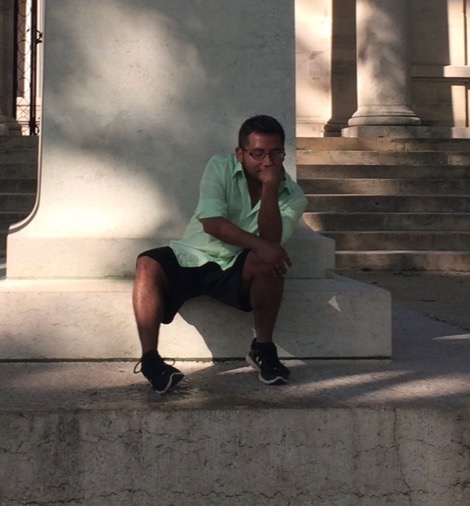 Rich Holler earned his B.A. in Psychology and minor in Biology at the Pennsylvania State University, where he acquired research experience in a cognitive-social-developmental psychology lab, an anthropological genomics lab, and an evolutionary anthropological lab. After graduating, he traveled to the University of Texas at Austin to assist Daniel Conroy-Beam and Laith Al-Shawaf from the Buss Lab. Rich received his M.A. under the tutelage of Glenn Geher, Ph.D. at the State University of New York at New Paltz in 2017, where he also participated in a social-cognition lab. Generally, he is interested in evolutionary cyberpsychology and sexuality. Specifically, he’s interestsed in the effects of habitual internet use on mate selection, sexual desire, and sexual and romantic relationships. When Rich is not reading or writing, he watches college and professional football, runs, plays guitar, fishes, and rides his beloved bike called The HMB Beagle.
Rich Holler earned his B.A. in Psychology and minor in Biology at the Pennsylvania State University, where he acquired research experience in a cognitive-social-developmental psychology lab, an anthropological genomics lab, and an evolutionary anthropological lab. After graduating, he traveled to the University of Texas at Austin to assist Daniel Conroy-Beam and Laith Al-Shawaf from the Buss Lab. Rich received his M.A. under the tutelage of Glenn Geher, Ph.D. at the State University of New York at New Paltz in 2017, where he also participated in a social-cognition lab. Generally, he is interested in evolutionary cyberpsychology and sexuality. Specifically, he’s interestsed in the effects of habitual internet use on mate selection, sexual desire, and sexual and romantic relationships. When Rich is not reading or writing, he watches college and professional football, runs, plays guitar, fishes, and rides his beloved bike called The HMB Beagle.
Past Editors
Dustin Eirdosh (Associate Editor – Book Reviews)
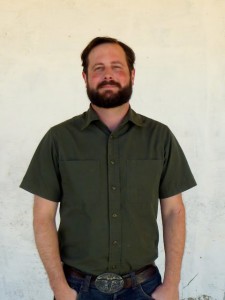 Dustin has a background in human ecology, sustainable agriculture, and civic education. He has over a decade of practical experience both in the classroom and on the farm, often connecting this work through applied community development projects. During his graduate work in Germany, his wife moved to Madagascar for doctoral work – and he followed. There, since 2012, he has cultivated a small experimental EvoS Program at southwestern Madagascar´s national University of Toliara. Together with his wife, Dr. Susan Hanisch, they are working with the local faculties of educational sciences and agricultural science to revitalize a historic agricultural research station, using evolutionary principles of human cooperation as a framework for strengthening university governance at multiple levels of organization.
Dustin has a background in human ecology, sustainable agriculture, and civic education. He has over a decade of practical experience both in the classroom and on the farm, often connecting this work through applied community development projects. During his graduate work in Germany, his wife moved to Madagascar for doctoral work – and he followed. There, since 2012, he has cultivated a small experimental EvoS Program at southwestern Madagascar´s national University of Toliara. Together with his wife, Dr. Susan Hanisch, they are working with the local faculties of educational sciences and agricultural science to revitalize a historic agricultural research station, using evolutionary principles of human cooperation as a framework for strengthening university governance at multiple levels of organization.
Hadassah Head (Associate Editor – Undergraduate Submissions)
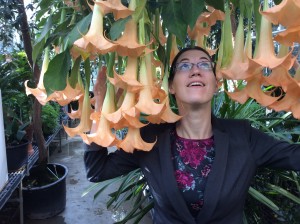 Hadassah Head is the Coordinator for the EvoS program at Binghamton University. She completed her Master’s in System Science and a graduate certificate in Evolutionary Studies at Binghamton University. She also attended Binghamton as an undergraduate. She attained her Bachelors in Mathematics and a minor in Russian and Eastern European Studies. She studied Jewish studies at Pardes Institute of Jewish Learning. Her interests include community development, human factors, complexity, sustainability, organizational and group behavior, religion, networks and evolution. She tweets as @Haddie.
Hadassah Head is the Coordinator for the EvoS program at Binghamton University. She completed her Master’s in System Science and a graduate certificate in Evolutionary Studies at Binghamton University. She also attended Binghamton as an undergraduate. She attained her Bachelors in Mathematics and a minor in Russian and Eastern European Studies. She studied Jewish studies at Pardes Institute of Jewish Learning. Her interests include community development, human factors, complexity, sustainability, organizational and group behavior, religion, networks and evolution. She tweets as @Haddie.
Melvin Philip (Associate Editor – Special Projects)
 Mel was an undergraduate at the University at Albany, where Dr. Gordon Gallup introduced him to the study of human behavior from an evolutionary perspective. After graduating, he went to SUNY New Paltz to study under the guidance of Dr. Glenn Geher. He is now a graduate student at Binghamton University, where he with Dr. David Sloan Wilson works on evolution and cooperation in prosocial and proenvironmental businesses.
Mel was an undergraduate at the University at Albany, where Dr. Gordon Gallup introduced him to the study of human behavior from an evolutionary perspective. After graduating, he went to SUNY New Paltz to study under the guidance of Dr. Glenn Geher. He is now a graduate student at Binghamton University, where he with Dr. David Sloan Wilson works on evolution and cooperation in prosocial and proenvironmental businesses.
Aron Wiegand (Associate Editor)
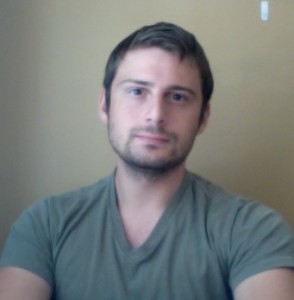 Aron Wiegand is currently a Research Scholar at the State University of New York at New Paltz, and comes to us with a research background in Biological Psychology and Behavioral Neuroscience. He has a B.A in Psychology with a minor in Biology from the American University in Washington DC, and an MSc. in Evolutionay and Comparative Psychology from the University of St. Andrews. He has taken courses in Evolution and Neuroanatomy at the University of Edinburgh, and his research interests include evolutionary genetics, the origins of cognition, and the comparative study of language.
Aron Wiegand is currently a Research Scholar at the State University of New York at New Paltz, and comes to us with a research background in Biological Psychology and Behavioral Neuroscience. He has a B.A in Psychology with a minor in Biology from the American University in Washington DC, and an MSc. in Evolutionay and Comparative Psychology from the University of St. Andrews. He has taken courses in Evolution and Neuroanatomy at the University of Edinburgh, and his research interests include evolutionary genetics, the origins of cognition, and the comparative study of language.
Editorial Associates:
Vania Rolon (Media Tzar)
 is a Master’s student in the Psychology Department at SUNY New Paltz. Born and raised in Cochabamba, Bolivia, much of her fascination with Evolutionary Psychology is the field’s ability to cross the cultural boundary and find universal behaviors. While completing her thesis, she works as a psychological statistics teaching assistant and is part of the Evolutionary Psychology Lab and the Positive Play Lab.
is a Master’s student in the Psychology Department at SUNY New Paltz. Born and raised in Cochabamba, Bolivia, much of her fascination with Evolutionary Psychology is the field’s ability to cross the cultural boundary and find universal behaviors. While completing her thesis, she works as a psychological statistics teaching assistant and is part of the Evolutionary Psychology Lab and the Positive Play Lab.
Editorial Consultants:
Glenn Geher, SUNY New Paltz
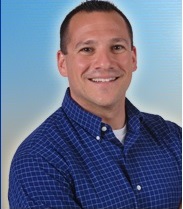 Glenn Geher is Professor and Chair of Psychology as well as Director of Evolutionary Studies at the State University of New York at New Paltz. Glenn has taught several courses at the undergraduate and graduate levels – including Statistics, Social Psychology, and Evolutionary Psychology – and has won the New Paltz Alumni Association’s Distinguished Teacher of the Year Award, along with the Chancellor’s Award for Teaching Excellence from the State University of New York. First and foremost, Glenn is a teacher, and his primary goal is to educate and support his students and work to facilitate their success as they develop across their careers. He tweets at @glenngeher
Glenn Geher is Professor and Chair of Psychology as well as Director of Evolutionary Studies at the State University of New York at New Paltz. Glenn has taught several courses at the undergraduate and graduate levels – including Statistics, Social Psychology, and Evolutionary Psychology – and has won the New Paltz Alumni Association’s Distinguished Teacher of the Year Award, along with the Chancellor’s Award for Teaching Excellence from the State University of New York. First and foremost, Glenn is a teacher, and his primary goal is to educate and support his students and work to facilitate their success as they develop across their careers. He tweets at @glenngeher
Jennifer Waldo, SUNY New Paltz
David Sloan Wilson, Binghamton University
